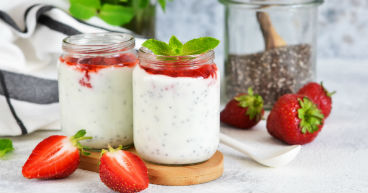
Scientists began investigating the medicinal properties of marijuana nearly 150 years ago. And while medicinal marijuana is now legal in 36 U.S. states and recreational marijuana can be used in 15 states plus Washington, D.C., researchers still don’t fully understand the ways in which cannabis products may be of benefit to cancer patients.
Marijuana is a term used to describe parts of the cannabis sativa plant that contain a substance called tetrahydrocannabinol (THC) – a psychoactive chemical that can change a person’s mental state. The cannabis plant also contains cannabidiol (CBD), a chemical that increases feelings of relaxation. THC and CBD are two of more than 100 substances found in the cannabis plant. These substances are referred to as cannabinoids.
Cancer patients who are experiencing symptoms like pain and nausea may be interested in learning whether cannabinoids can help ease these symptoms. But first, it’s important to understand what cannabis is, what the research says and whether it’s legal to use. This article covers the basics, including:
- Cannabis and cancer
- How do cancer patients use cannabis?
- How might marijuana ease cancer symptoms?
- Risks of marijuana for cancer patients
- CBD for cancer
- CBD for cancer pain and other symptoms
- Can you use CBD with chemotherapy?
- Risks of CBD in cancer patients
If you or a loved one have been diagnosed with cancer and want to get a second opinion of the diagnosis or more information about treatment options call us or chat online with a member of our team.
Cannabis and cancer
According to the American Society for Clinical Oncology, cannabis does not treat cancer or slow down its growth. However, doctors may prescribe some forms of cannabis to help cancer patients manage some of the common symptoms of cancer and side effects of treatments.
The U.S. Food and Drug Administration has approved these two cannabinoid-based drugs to treat nausea and vomiting caused by chemotherapy:
- Dronabinol (Marinol® or Syndros®)
- Nabilone (Cesamet®)
However, any cancer patient considering using a non-approved cannabis medication should discuss this with their care team before making any decisions.
How do cancer patients use cannabis?
There are several common ways that cancer patients may use cannabis. These include:
- Inhaling cannabis smoke from a joint, pipe or other device
- Consuming cannabis in the form of an “edible,” for instance, a gummy, a pill or a baked item
- Dissolving cannabis, in the form a liquid or chewable, under the tongue
- Applying a topical cannabis product like a gel, cream or ointment
How fast any cannabis product works, how long it lasts and how strong it is, may depend in part on how the product is taken and its potency.
How might marijuana ease cancer symptoms?
Marijuana and cannabis products have been shown to help manage certain common symptoms related to cancer and its treatments. These include:
- Nausea or vomiting
- Pain
- Loss of appetite (caused by anorexia cachexia)
- Problems with sleep
- Stress or anxiety
Scientists at City of Hope’s Cherng Family Center for Integrative Oncology—which investigates the use of integrative therapies in cancer care—will soon launch a research project that examines the medical benefits of cannabis for people undergoing treatment.
Richard Lee, MD, the director of the Cherng Center, explains: “We have several projects that are going to begin in the next three to six months, one of them being the use of cannabis for the treatment of chemotherapy-induced neuropathy.”
Neuropathy is a condition that can cause pain, tingling or other changes to the nerves.
Cannabis products with CBD may be particularly beneficial for patients receiving chemotherapy, both because it appears to help with nausea and some types of pain caused by cancer or certain kinds of treatment. However, it is important that patients talk to their cancer doctor about the benefits and potential risks of using marijuana during cancer treatment. This is because there may be risks involved depending on the type of cancer someone has, what stage it is at and what treatments they are receiving.
Risks of marijuana for cancer patients
While studies have found that cannabis products may help alleviate some cancer symptoms, there is still very little research on how these products might interact with conventional cancer treatments. On top of this, there are some potential risks for cancer patients using cannabis, including:
- Mental and emotional side effects, such as unexpected mood changes, feeling high, confused or paranoid, or having issues remembering or concentrating on things.
- Feeling too dizzy, lightheaded or unfocused to carry out tasks safely, for instance, driving or work activities.
- Possible interactions between cannabis and other cancer treatments that may lead to additional health issues.
- Increased risk of heart or lung health issues.
- Increased risk of becoming dependent on cannabis products containing THC. This risk is greater for those with a history of substance use disorders.
- With prolonged use, an increased risk of more serious mental health conditions developing over time.
CBD for cancer
CBD, short for cannabidiol, is a chemical found in the cannabis plant. It is a common ingredient in many cannabis and marijuana products. Unlike THC – the other main chemical in cannabis – CBD is not psychoactive, meaning that it does not cause a “high” or alter someone’s mental or emotional state.
The most common way that cancer patients use CBD is for pain management. It can also be used to help patients relax, if they are feeling anxiety or stress related to their cancer journey.
CBD for cancer pain and other symptoms
To date, there are not many studies into how CBD alleviates cancer pain. However, we do know that that CBD can change the way the brain perceives pain. Research has also suggested that CBD may be an effective part of a larger strategy for managing cancer.
Doctors and researchers are continuing to pursue other projects, including clinical trials, investigating the potential benefits of cannabis products for those undergoing cancer treatment. One recent study conducted by the Beckman Research Institute at City of Hope®, for instance, found that a less common cannabinoid known as cannabigerol (or CBG) may have the potential to alleviate pain and inflammation in patients with conditions such as cancer.
Can you use CBD with chemotherapy?
Patients receiving chemotherapy should discuss any therapy, medication or supplement that they are considering using with their cancer care team or an oncologist.
Risks of CBD in cancer patients
In states where medical marijuana is legal, there are strict guidelines about how it can be manufactured and sold. There are far fewer regulations surrounding CBD products. This can pose some risks for patients considering using CBD, such as:
- Inaccurate labeling, making it unclear what ingredients are in a product.
- Not knowing the strength of the product.
- Legal issues related to using cannabis products that are not regulated.
It is best to buy CBD products only from a state-regulated cannabis dispensary, since these products must be produced safely and follow a variety of quality assurance steps. However, as always, cancer patient should talk to their oncologist before taking any new medication or supplement.
City of Hope cannabis policy: The possession and use of cannabis (marijuana) in any form is prohibited in all City of Hope locations, both inside and outside buildings. While Arizona, California and Illinois—states where City of Hope cancer centers are located— have legalized marijuana for recreational use, it remains illegal under federal law. City of Hope must abide by federal law and regulation, and as such, possession of marijuana at City of Hope continues to be prohibited.


